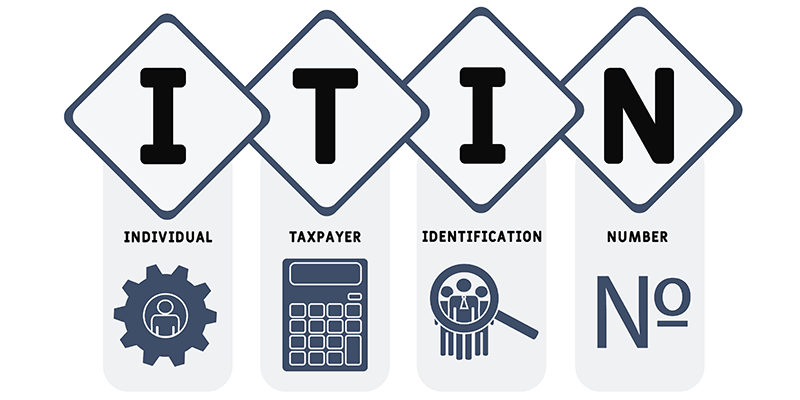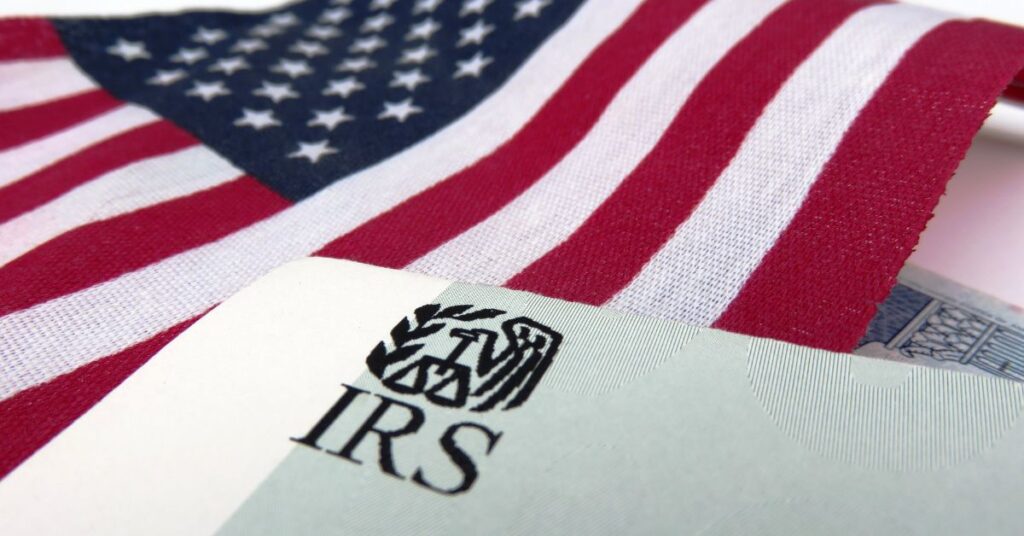Navigating the US tax identification system represents one of the first critical hurdles international companies face when expanding into the American market. With multiple acronyms—FEIN (Federal Employer Identification Number), EIN (Employer Identification Number), SSN (Social Security Number), ITIN (Individual Taxpayer Identification Number), TIN (Taxpayer Identification Number)—floating around business discussions, even experienced executives can find themselves confused about which numbers they need, when they need them, and how to obtain them properly.
Having guided hundreds of international businesses through US expansion, we understand that these tax identification numbers aren’t just bureaucratic requirements—they’re the foundation of your entire American business presence. The wrong approach can delay market entry by months, while the right strategy accelerates your path to operational success.
This comprehensive guide demystifies the entire US tax identification landscape, providing international companies with the practical knowledge needed to navigate these requirements efficiently and correctly.
Understanding the US Tax ID Ecosystem: More Than Just Numbers

The United States tax system operates on a foundation of unique identification numbers that serve different purposes within the federal framework. Unlike many countries with single national identification systems, the US employs multiple taxpayer identification numbers (TINs) designed for specific situations and entity types.
For international companies, understanding this ecosystem is crucial because your expansion strategy will determine which numbers you need and in what sequence. The Internal Revenue Service (IRS) issues most business tax identification numbers, while the Social Security Administration (SSA) handles individual Social Security Numbers.
US Tax ID Comparison Table
Tax ID Type | Full Name | Format | Issued By | Primary Use | Who Needs It |
EIN/FEIN | Employer Identification Number / Federal Employer Identification Number | XX-XXXXXXX | IRS | Business tax identification | All US businesses, international companies with US operations |
SSN | Social Security Number | XXX-XX-XXXX | Social Security Administration (SSA) | Individual tax identification | US citizens, permanent residents, authorized workers |
ITIN | Individual Taxpayer Identification Number | 9XX-XX-XXXX | IRS | Individual tax filing for non-SSN holders | Foreign individuals with US tax obligations |
TIN | Taxpayer Identification Number | Various | IRS/SSA | Umbrella term for all tax IDs | General reference term |
The Hierarchy of US Tax Identification
Primary Business Identifier: EIN/FEIN For international companies establishing US operations, the Employer Identification Number (EIN)—also known as Federal Employer Identification Number (FEIN)—serves as your business’s primary tax identifier. This nine-digit number functions as your company’s Social Security Number within the US tax system.
Individual Tax Identifiers: SSN and ITIN Individual tax identification serves different populations: Social Security Numbers (SSNs) for US citizens and authorized workers, and Individual Taxpayer Identification Numbers (ITINs) for foreign individuals with US tax obligations who don’t qualify for SSNs.
The Terminology Confusion The terms EIN, FEIN, and Federal Tax ID are often used interchangeably, creating confusion for international businesses. Technically, they all refer to the same nine-digit business identifier issued by the IRS. “FEIN” simply emphasizes the “Federal” aspect, while “EIN” is the more commonly used abbreviation.
EIN/FEIN: Your Business’s American Identity

What Is an EIN and Why International Companies Need It
An Employer Identification Number (EIN) is a unique nine-digit identifier assigned by the IRS to identify your business for tax purposes. Think of it as your business’s passport to the American marketplace—without it, you cannot legitimately operate in the US.
The EIN format follows the pattern XX-XXXXXXX, where the first two digits indicate the IRS processing center that assigned the number. For international companies, this number becomes essential for virtually every business operation in the United States.
Critical EIN Applications for International Companies
Banking and Financial Services No legitimate US bank will open a business account without an EIN. This requirement extends beyond traditional banks to include fintech services, payment processors, and business credit applications. As we detail in our guide to establishing US banking for foreign businesses, the EIN serves as the foundational requirement for financial relationships.
Employee Management and Payroll If your US expansion includes hiring American employees—a common strategy detailed in our analysis of hiring in the US for foreign companies—you’ll need an EIN to process payroll, withhold taxes, and file employment-related returns.
Business Licensing and Permits State and local authorities require EINs for business license applications, permit requests, and regulatory compliance. This becomes particularly important for companies establishing physical operations, as discussed in our US subsidiary setup guide.
Tax Compliance and Reporting The EIN enables your business to file federal, state, and local tax returns, complete Form W-8BEN for international tax treaty benefits, and satisfy IRS reporting requirements for foreign-owned US entities.
EIN Application Process for International Companies
The EIN application process varies significantly for international companies compared to US-based businesses, with specific requirements and procedures that can impact processing times and success rates.
Application Methods Available to International Companies
Application Methods Available to International Companies
Online Application (Limited Availability) The IRS online EIN application system provides immediate results but requires the responsible party to have a valid US tax identification number (SSN, ITIN, or existing EIN). Most international business owners don’t meet this requirement initially, making this option unavailable for first-time applicants.
Fax Application (Recommended for International Companies) The fax method offers the most reliable path for international businesses, typically processing within 4 business days. Using the dedicated international fax number (304) 707-9471, international companies can submit Form SS-4 with supporting documentation during US business hours.
Mail Application (Traditional Route) Mail applications take 4-6 weeks but allow for comprehensive supporting documentation. This method works well for complex business structures or when detailed explanations accompany the application.
Recommended: At Foothold America, we handle EIN applications as part of our comprehensive US entity setup services, managing the entire process to ensure proper documentation and timely processing for international companies.
Required Documentation for International Applicants
International companies must provide specific documentation beyond the basic Form SS-4:
- Legal business documentation from home country (articles of incorporation/organization)
- Certified English translations of foreign documents
- Responsible party identification (passport or other valid ID)
- Business purpose and structure explanation
- US address (can be registered agent address)
For detailed step-by-step guidance on this process, our comprehensive EIN application guide walks through each stage of the application process with specific advice for international companies.
Common Challenges and Solutions
Responsible Party Requirements The IRS requires identifying a “responsible party”—an individual who controls the business’s finances. This person must have authority over the business and provide valid identification. International companies often struggle with this requirement when business owners lack US tax identification numbers.
Documentation Translation and Certification Foreign business documents require certified translation into English. Working with professional translation services familiar with IRS requirements ensures acceptance and reduces processing delays.
US Address Requirements While your business can operate internationally, the IRS requires a US mailing address for the EIN application. Many international companies use registered agent services to meet this requirement, as detailed in our virtual office solutions guide.
SSN: Individual Tax Identification for US Persons
Understanding Social Security Numbers in Business Context
Social Security Numbers serve as primary tax identification for US citizens and authorized workers. While international business owners typically don’t qualify for SSNs, understanding their role becomes important when considering US residency, hiring employees, or partnering with US individuals.
SSN Eligibility Requirements The Social Security Administration issues SSNs to:
- US citizens (by birth or naturalization)
- Lawful permanent residents (green card holders)
- Foreign nationals with work authorization
Business Applications of SSNs For single-member LLCs and sole proprietorships, owners can use their SSN instead of obtaining a separate EIN. However, most business experts recommend obtaining an EIN even when optional, as it provides better privacy protection and operational flexibility.
Privacy and Security Considerations Using an SSN for business purposes creates privacy risks, as the number must be shared with clients, vendors, and business partners. An EIN provides separation between personal and business identification, reducing identity theft exposure.
ITIN: Tax Compliance for Foreign Individuals

When International Business Owners Need ITINs
Individual Taxpayer Identification Numbers (ITINs) serve foreign individuals who need to file US tax returns but don’t qualify for Social Security Numbers. For international business owners, ITINs become relevant in specific scenarios:
Partnership and LLC (Limited Liability Company) Ownership Foreign individuals owning interests in US partnerships or LLCs may need ITINs for tax reporting purposes, even if the business has its own EIN.
Real Estate Investments International business owners purchasing US real estate for business purposes often require ITINs for tax reporting and withholding requirements.
US Tax Filing Requirements Foreign individuals with US-source income may need ITINs to comply with federal tax filing obligations and claim appropriate deductions.
ITIN Application Process: Form W-7
The ITIN application process requires careful attention to IRS requirements and documentation standards that have become increasingly strict over recent years.
Required Documentation The IRS accepts only 13 specific documents to prove identity and foreign status:
Standalone Documents (Prove Both Identity and Foreign Status):
- Valid passport (most common choice for international applicants)
Combination Documents (Two Required):
- National identification card plus birth certificate
- Driver’s license plus visa
- Military identification plus birth certificate
Application Methods
Mail Application Submit Form W-7 with required tax return and original documentation to: Internal Revenue Service ITIN Operation P.O. Box 149342 Austin, TX 78714-9342
Certified Acceptance Agent (CAA) Working with an IRS-authorized CAA allows document verification without mailing original documents. This option provides convenience and security for valuable documents like passports.
IRS Taxpayer Assistance Centers Some IRS offices accept ITIN applications with in-person document verification, though availability varies by location.
Processing Timeline and Expectations
- Standard processing: 7 weeks
- Peak tax season (January-April): 9-11 weeks
- International applications: May take additional time due to document verification
Recent Changes Affecting International Applicants
The Protecting Americans from Tax Hikes Act implemented significant changes to ITIN requirements:
- All applicants must attach federal tax returns (with limited exceptions)
- Stricter documentation requirements
- Automatic ITIN expiration after three consecutive years of non-use
- Enhanced verification procedures for foreign documents
Strategic Tax ID Planning for International Companies
Sequencing Your Tax ID Applications
International companies must strategically sequence their tax identification applications to minimize delays and ensure operational continuity.
Phase 1: Business Foundation
- Entity Formation: Establish your US business entity (LLC, corporation, etc.)
- EIN Application: Apply for your business EIN immediately after entity formation
- Address Establishment: Secure US address through virtual office services or physical location
Phase 2: Operational Setup
- Banking Relationships: Open US business bank accounts using your EIN
- ITIN Applications: Apply for individual ITINs if needed for specific business purposes
- State Registrations: Complete state tax ID registrations as required for your operations
Phase 3: Compliance Integration
- Tax System Setup: Implement accounting and tax compliance systems
- Employee Onboarding: Use EIN for payroll and employment tax obligations
- Ongoing Compliance: Maintain all tax ID requirements and renewals
Common Mistakes and How to Avoid Them
Documentation Errors That Delay Applications
Incomplete or Inaccurate Forms The most common application delays result from incomplete information or data inconsistencies. Every field must match exactly across all documents, including name spelling, addresses, and dates.
Translation and Certification Issues Foreign documents require certified translations from qualified professionals. Machine translations or informal translations will result in application rejection.
Responsible Party Complications Many international companies struggle with responsible party designation. The individual must have actual authority over business decisions and provide valid identification meeting IRS requirements.
Strategic Mistakes That Create Long-term Problems
Applying for Wrong Tax ID Types Companies sometimes apply for ITINs when they need EINs, or vice versa. Understanding your specific requirements before starting applications prevents costly delays.
Poor Timing of Applications Applying for tax IDs without considering business timeline can create operational disruptions. Plan applications to align with business launch schedules and operational requirements.
Inadequate Professional Support Complex international business structures often require professional guidance to navigate tax ID requirements properly. Attempting to manage these processes without expertise frequently results in mistakes that take months to correct.
Maintenance and Compliance: Keeping Your Tax IDs Active
EIN Maintenance Requirements
Unlike individual tax IDs, EINs don’t expire but require proper maintenance through business operations and compliance.
Annual Filing Obligations
- File required federal tax returns (even if no tax owed)
- Maintain accurate business address and contact information
- Update IRS records for significant business changes
Business Structure Changes Certain business changes may require new EINs:
- Change from sole proprietorship to corporation
- Significant ownership structure modifications
- Business dissolution and reformation
ITIN Renewal and Maintenance
ITINs require active management to prevent expiration and maintain compliance.
Automatic Expiration Rules ITINs expire if not used on tax returns for three consecutive years. Renewal requires submitting Form W-7 with updated documentation.
Scheduled Expiration Dates The IRS has implemented rolling renewal schedules:
- ITINs with middle digits 88 expire at end of 2025
- Other middle digit combinations have specific expiration schedules
- Check IRS renewal schedules for your specific ITIN
Proactive Renewal Strategy Submit renewal applications 45 days before needed for tax filing to ensure continuous compliance and avoid processing delays during peak periods.
Building Your US Tax Compliance Foundation
Navigating US tax identification requirements represents just the beginning of your American business journey. The complexity of obtaining and maintaining multiple tax IDs—while managing ongoing compliance obligations—can overwhelm even experienced international executives.
Success requires understanding not just what tax IDs you need, but when to apply for them, how to maintain compliance, and how they integrate with your US business operations. The timing of these applications, the accuracy of your documentation, and the strategic sequence of your tax ID acquisition can significantly impact your speed to market and operational effectiveness.
Start with Professional Guidance
International companies benefit significantly from working with professionals who understand US tax ID requirements and international business operations. While we don’t provide tax advice, we guide companies through the practical steps of obtaining necessary tax IDs and establishing compliant business structures.
Plan for Business Growth
Your initial tax ID strategy should accommodate future expansion of your US presence. Whether you’re starting with a simple subsidiary or planning multiple business entities, early planning prevents costly restructuring later.
Integrate with Business Operations
Tax ID acquisition must align with entity formation, banking relationships, employee hiring, and operational launch timelines. Successful international companies coordinate these elements to ensure smooth market entry.
Get Your US Tax Foundation Right From the Start
Your tax identification strategy affects every aspect of your US operations—from opening bank accounts to hiring employees, processing payments to filing returns. With hundreds of international companies successfully navigating these requirements through our guidance, we understand both the technical requirements and the practical realities of US expansion.
We don’t provide tax advice, but we do guide international companies through the practical steps of obtaining necessary tax IDs, establishing business operations, and building compliant US structures that support long-term growth.
Your competitors are already establishing their American presence. The question is whether you’ll navigate these requirements efficiently or struggle through costly delays and mistakes.
Start your US expansion with the right foundation. Contact Foothold America today.
Frequently Asked Questions FEIN vs EIN vs SSN
Get answers to all your questions and take the first step towards a US business expansion.
While sole proprietors who are US citizens can sometimes use their social security card number for personal use in business contexts, international business owners face different requirements. Foreign entities must obtain a federal tax identification number (EIN) regardless of their business type. The social security office only issues SSNs to individuals with specific immigration status, which most international business owners don’t qualify for initially. Instead, foreign individuals who need to file personal taxes in the US may require an ITIN from the IRS. However, for business finances and income tax returns, your US entity needs its own tax ID number separate from any personal identification. This separation protects your personal taxes from business obligations and ensures compliance with federal government requirements.
The type of business you establish determines which tax forms you’ll need and affects your application process with state government agencies and the federal government. Small business entities like LLCs use different tax forms compared to corporations, though both require the same EIN application form from the IRS. When hiring new hires, all business types must use their federal taxpayer identification number for payroll processing and filing business tax returns. The IRS’s interactive tax assistant tool can help determine which specific tax forms apply to your business structure. If you’re working with tax professionals, they may need a preparer taxpayer identification number for filing your returns. At the state level, different entity types may have varying requirements from local social security office interactions to state-specific business registrations.
When international companies hire new hires for the first time, they must have a valid federal tax identification number to process payroll and handle employment taxes. Your business name must be registered with both federal government and state government agencies before you can legally employ workers. Employees will need to provide either a social security card (for US citizens and authorized workers) or appropriate immigration status documentation. The company’s EIN allows you to file business tax returns that include employment taxes, separate from any personal taxes the business owners might owe. This tax ID number also enables you to obtain business licenses required for employment and ensures compliance with both federal and state level employment regulations.
Foreign entities must complete the proper application form (Form SS-4) and provide documentation proving their business structure and immigration status of responsible parties. Financial institutions will require this federal taxpayer identification number before opening business accounts, making it essential for managing business finances. The IRS’s interactive tax assistant tool can help determine additional requirements based on your specific type of business. You’ll need certified translations of foreign business documents and proof of your business name registration. If any individuals involved lack a social security card due to immigration status, they may need to apply for an ITIN separately. The process involves coordination between federal government requirements and state level compliance, ensuring your foreign entity can properly file income tax returns and business tax returns.
Given the complexity of US tax regulations and the various requirements from different government agencies, seeking legal advice is highly recommended for international businesses. Legal professionals can help ensure your business name registration, entity setup, and tax ID applications align with both federal government and state government agencies’ requirements. They can also advise on immigration status implications for business owners and key employees, and help coordinate between personal taxes and business obligations. Professional guidance becomes especially valuable when dealing with state level variations in requirements, managing new hires, and ensuring your small business or larger enterprise maintains compliance with all relevant tax forms and filing obligations. This legal advice can prevent costly mistakes and delays that might affect your ability to work with financial institutions and operate your US business effectively. To learn more about US business expansion services and how Foothold America can support your tax ID and entity setup needs, contact our team of experts at https://www.footholdamerica.com/.
GET IN TOUCH
Contact Us
Complete the form below, and one of our US expansion experts will get back to you shortly to book a meeting with you. During the call, we will discuss your business requirements, walk you through our services in more detail and answer any questions you might have.









